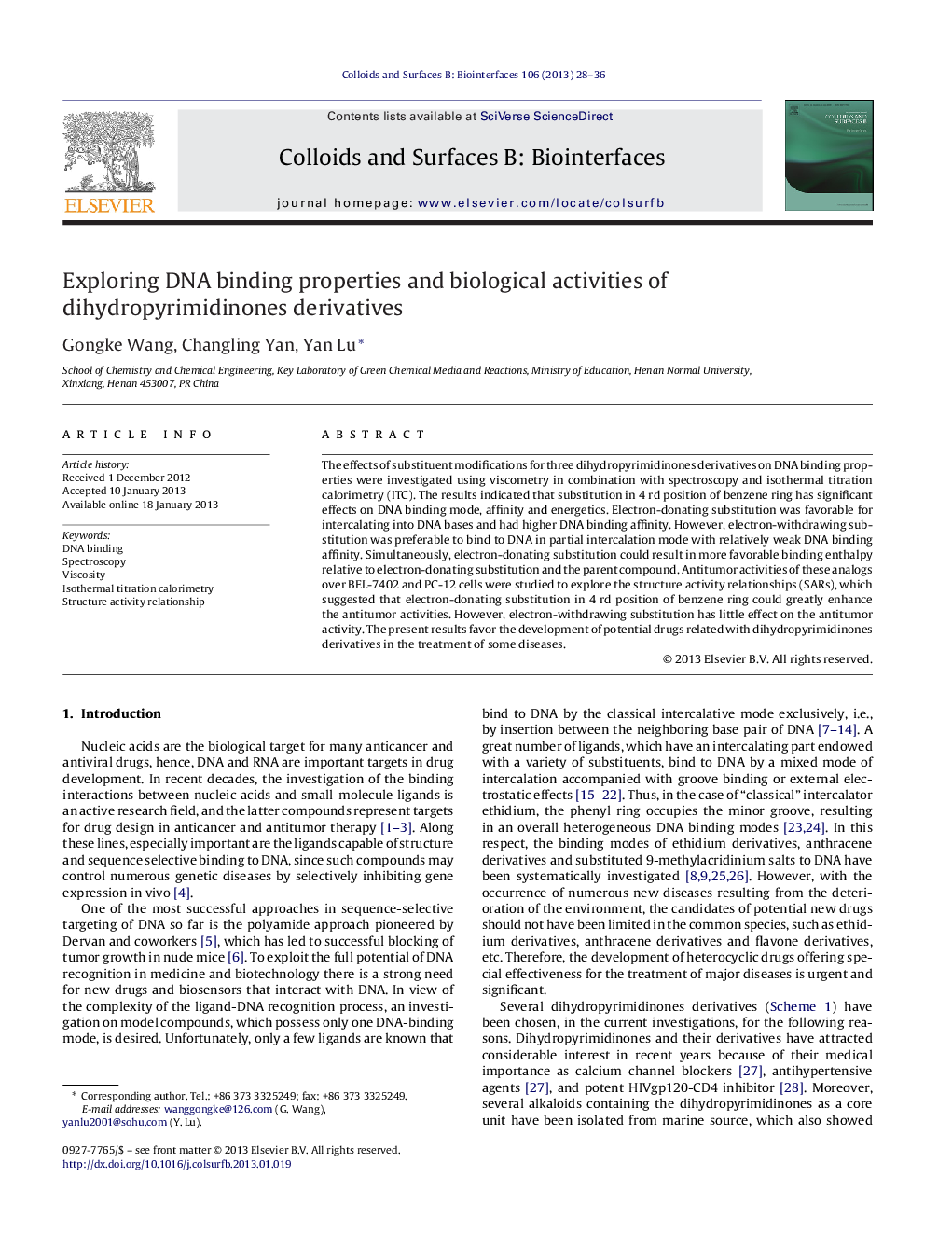| Article ID | Journal | Published Year | Pages | File Type |
|---|---|---|---|---|
| 600288 | Colloids and Surfaces B: Biointerfaces | 2013 | 9 Pages |
The effects of substituent modifications for three dihydropyrimidinones derivatives on DNA binding properties were investigated using viscometry in combination with spectroscopy and isothermal titration calorimetry (ITC). The results indicated that substitution in 4 rd position of benzene ring has significant effects on DNA binding mode, affinity and energetics. Electron-donating substitution was favorable for intercalating into DNA bases and had higher DNA binding affinity. However, electron-withdrawing substitution was preferable to bind to DNA in partial intercalation mode with relatively weak DNA binding affinity. Simultaneously, electron-donating substitution could result in more favorable binding enthalpy relative to electron-donating substitution and the parent compound. Antitumor activities of these analogs over BEL-7402 and PC-12 cells were studied to explore the structure activity relationships (SARs), which suggested that electron-donating substitution in 4 rd position of benzene ring could greatly enhance the antitumor activities. However, electron-withdrawing substitution has little effect on the antitumor activity. The present results favor the development of potential drugs related with dihydropyrimidinones derivatives in the treatment of some diseases.
Graphical abstractFigure optionsDownload full-size imageDownload as PowerPoint slideHighlights► Several dihydropyrimidinones derivatives are efficiently synthesized. ► The DNA binding properties of these derivatives are studied with multiple techniques. ► The binding energetics is elucidated through ITC studies. ► The structure activity relationships are investigated with MTT assay.
